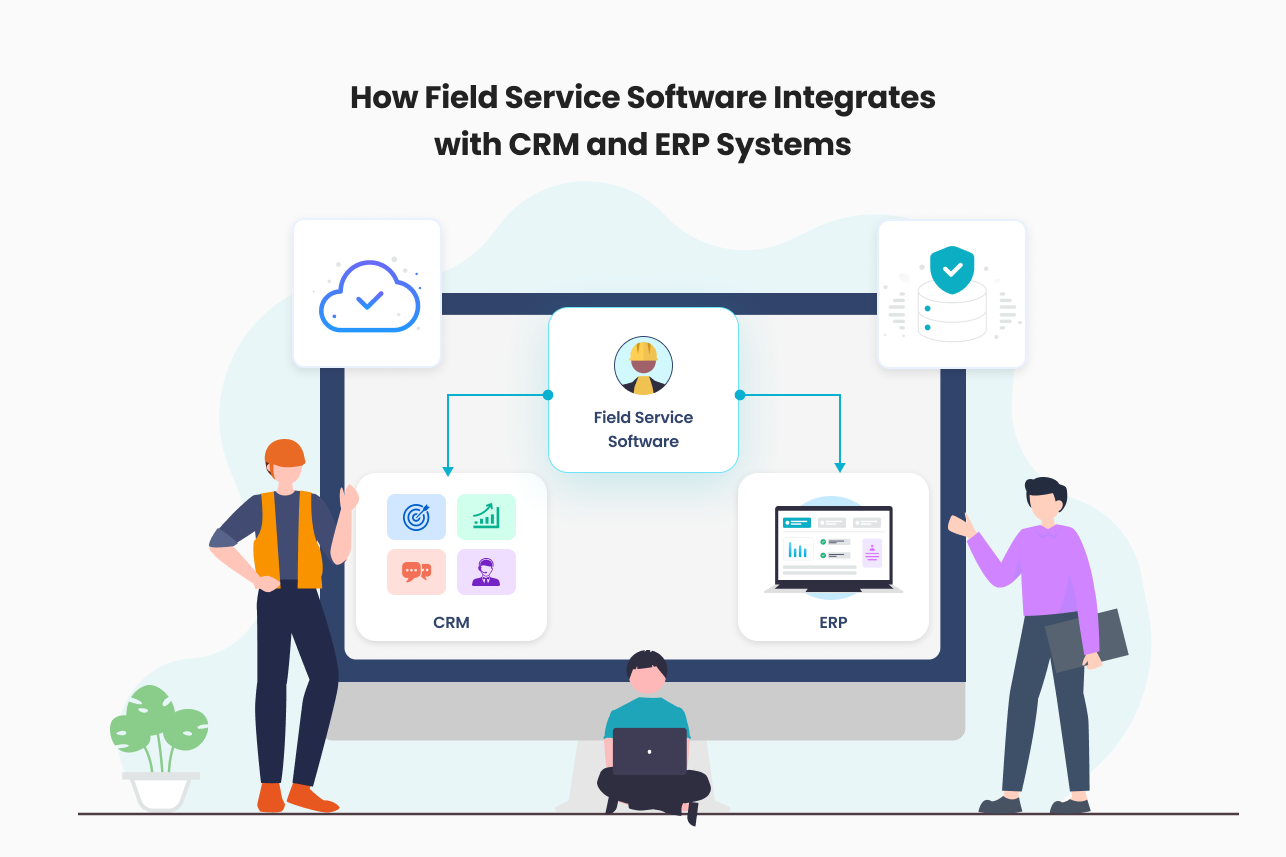In today’s competitive business landscape, efficiency and streamlined operations are crucial for success. Field service software (FSS) plays a pivotal role in managing and optimizing field operations, but its true potential is realized when it integrates seamlessly with other business systems like Customer Relationship Management (CRM) and Enterprise Resource Planning (ERP) systems. This integration provides a unified platform that enhances data flow, improves decision-making, and boosts overall productivity. Here’s how field service software integrates with CRM and ERP systems.
Enhancing Customer Experience with CRM Integration
- Unified Customer Data
Integrating field service software with CRM systems consolidates customer data in one place. This means that field technicians have access to complete customer histories, preferences, and past interactions. This comprehensive view enables personalized service, improving customer satisfaction and loyalty.
- Real-time Updates
Real-time data synchronization between CRM and field service software ensures that any updates made in one system are immediately reflected in the other. For instance, when a technician updates a job status in the field service software, the CRM system is instantly updated, providing the sales and support teams with up-to-date information.
- Improved Scheduling and Dispatch
CRM integration allows for better scheduling and dispatching of field technicians. By having access to customer data, the field service software can optimize schedules based on customer availability and preferences, ensuring timely and efficient service delivery.
Streamlining Operations with ERP Integration
- Centralized Data Management
ERP systems manage core business processes such as inventory, accounting, and human resources. Integrating field service software with ERP systems centralizes data management, reducing the need for manual data entry and minimizing errors. This integration ensures that inventory levels, financial records, and workforce information are consistently up-to-date across all systems.
- Inventory and Asset Management
Field service software integrated with ERP systems can track and manage inventory and assets more effectively. Technicians can access real-time inventory data, ensuring they have the necessary parts and tools for each job. This reduces downtime and enhances productivity by preventing delays caused by missing or incorrect parts.
- Financial Management
Integration with ERP systems streamlines financial management by automating billing, invoicing, and expense tracking. When a job is completed, the field service software can automatically generate invoices and update the financial records in the ERP system. This seamless flow of financial data enhances accuracy and reduces administrative overhead.
Benefits of Integration
- Enhanced Data Accuracy
Integrating field service software with CRM and ERP systems reduces the risk of data discrepancies and errors. Automated data synchronization ensures that all systems have consistent and accurate information, which is crucial for informed decision-making and strategic planning.
- Improved Efficiency
Automation of processes and data flow between systems enhances operational efficiency. Tasks that previously required manual intervention, such as data entry, scheduling, and billing, can be automated, freeing up valuable time for employees to focus on more critical activities.
- Better Decision-Making
Access to comprehensive and real-time data across CRM, ERP, and field service software enables better decision-making. Managers can analyze performance metrics, customer feedback, and financial data to identify trends, address issues, and capitalize on opportunities.
- Increased Customer Satisfaction
The integration of these systems leads to faster and more efficient service delivery, which directly impacts customer satisfaction. With access to detailed customer data and efficient scheduling, technicians can provide a higher level of service, addressing customer needs promptly and effectively.
Implementation Considerations
- Choosing the Right Integration Solution
Selecting the right integration solution is crucial. Businesses should opt for integration platforms or middleware that facilitate seamless connectivity between field service software, CRM, and ERP systems. These solutions should support data mapping, transformation, and real-time synchronization.
- Data Security and Compliance
Ensuring data security and compliance is essential when integrating multiple systems. Businesses must implement robust security measures to protect sensitive customer and financial data. Compliance with regulations such as GDPR and HIPAA should be a priority to avoid legal repercussions.
- Training and Support
Proper training and support are vital for successful integration. Employees should be trained to use the integrated systems effectively, and ongoing support should be available to address any issues or challenges that arise during and after the integration process.
Conclusion
Integrating field service software with CRM and ERP systems offers numerous benefits, including enhanced data accuracy, improved efficiency, better decision-making, and increased customer satisfaction. By consolidating data and automating processes, businesses can streamline their operations and provide superior service to their customers. Careful planning, the right integration solution, and a focus on data security and compliance are essential for a successful integration that drives business growth and efficiency.
